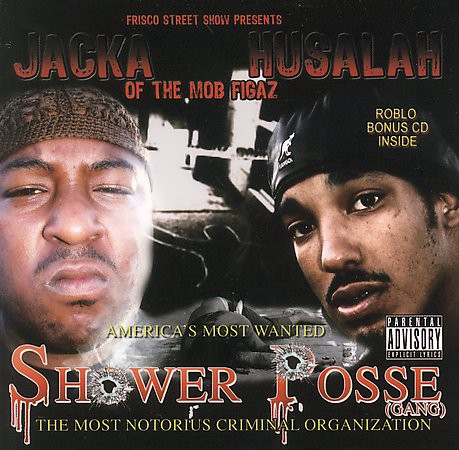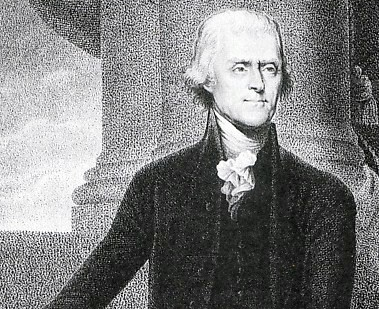Gun Battle Rages As Jamaican Government Attempts To Arrest Aptronymic Druglord

Wow. Here is a story that seems likely to be made into many raps songs and eventually a feature film. The Jamaican government is trying to arrest a notorious Kingston gang leader for extradition to New York. But he’s not going quietly. As the Times reports: “Security forces broke through barbed-wire barricades and fought their way into the warren-like Tivoli Gardens neighborhood Monday afternoon. Sporadic gunfire could be heard into the night echoing across the darkened slums, where authorities cut off power. Military helicopters flying with their lights off buzzed overhead. Masked gunmen swarmed around West Kingston trying to prevent the extradition of Christopher ‘Dudus’ Coke, who has been indicted in New York on drug and arms trafficking charges. The U.S. Justice Department considers him one of the world’s most dangerous drug lords.”
Coke’s gang is linked to the Labor party, currently in power in Jamaica, and the government had been refusing to act on U.S. pressure to arrest him for nine months. The gang is known as the “Shower Posse” due to their proclivity for showering their enemies with bullets. The government announced their intention to arrest Coke last week, and since Sunday, when the operation started, two police officers and one soldier have been killed. The footage in this ABC news report is crazy. Much more war zone than police procedure.
UPDATE: Willy Staley of the Bay Area rap site Nation of Thizzlam alerts us to the fact that there already is a rap album named after Coke and co. It’s from the duo Jacka and Husalah, and it came out in 2006. Proving that the Shower Posse has been notorious for a long time.

Baseball Team's "Go For Broke" Strategy Backfires

The Texas Rangers have entered voluntary bankruptcy to prepare for the team’s sale to a group headed by former MLB pitcher Nolan Ryan. The Dallas Morning News has a peek at just who the Rangers are in arrears to, and as it turns out, the team’s top six creditors are players. No. 1 on the list is the ever-troubled Alex Rodriguez, who’s owed some $25 million in deferred compensation, while No. 5 is former Rangers catcher Mickey Tettleton, who hasn’t played since 1997; the team is in arrears to him for $1.4 million. (No. 3 is current Rangers third baseman Michael Young, who the team is in hock to for $3.9 million; he was apparently kind of alarmed when alerted to his presence on the list yesterday.) Hey, don’t worry, Rangers fans! This is the first step toward getting “right,” and you can take comfort in the fact that your ownership won’t be giving handouts to Bobby Bonilla every year until 2035.
Massive Stock Sell-off (Part 37 In A Series)
Stocks are plummeting! The Dow has dropped below 10,000! But why? Today we’re going with “fears of a global economic slowdown” and “tensions ris[ing] on the Korean peninsula.” I bet the oil slick is happy to finally not be blamed for something. Although looking at these pictures is a lot more upsetting than worrying about imaginary numbers falling under some arbitrary threshold. Anyway, if you’ve got anything left under your mattress, keep an eye on it.
U2 And Christina Aguilera Will Not Be Riding Their Wild Horses This Summer

U2 and Christina Aguilera have both postponed their summer tours, thus reducing the number of big-name tours with headliners who don’t have to be referred to as “nostalgia acts” to an even-smaller number. (No, really, have you looked at the roster for your local shed? Scorpions, Foreigner, Yes, Chicago — it’s like 1983 never ended up.) U2’s jaunt, which included a headlining stint at the Glastonbury Festival, has been moved to 2011 because of frontman Bono’s back surgery; the Aguilera tour has been ditched until next year because the singer “needed more time to rehearse the show,” according to a statement from Live Nation, the concert megapromoter that’s putting on both those shows. (I wonder how that corralling of the entire large-scale live-music market is going for them? Eh, whatever, they’ll probably just add a few “facility charges” to make up for the lost U2 revenue.) In related Aguilera news, her forthcoming album Bionic leaked last night; the record is 18 tracks and includes cameos from Nicki Minaj, Lil Jon (really?), Le Tigre, and Peaches. “My Girls,” which features the latter two, is embedded after the jump.
I’m still giving Bionic a first spin, but one thing that’s marked its best tracks so far is Christina’s willingness to rein in her super-sized pipes and have fun with her voice. “I Am,” a collaboration with the deliberately oddball singer Sia, is particularly satisfying on this front.
Adventures in Facebook Privacy: Marine Claims He Humiliated Afghani Prisoner
Adventures in Facebook Privacy: Marine Claims He Humiliated Afghani Prisoner

Aren’t Facebook’s new “privacy” settings grand? So many Facebook profiles, now all publicly available. (Thanks, Mark Zuckerberg!) For example, here you can see Lionel Garcia’s Facebook page. Garcia, a 2007 graduate of Pasco Senior High in Washington State, has been in Afghanistan since February. Right before he left for overseas, the Marine posted to Facebook that “I’m gonna go illegally drive without my liscence.” [sic] But now that he’s in Afghanistan (all this is by his own report, of course), he’s found new fun things to do. The other day he “officially made an afghani hold up a sign that says ‘I’m A Faggot’ while I took a picture of him.” According to other recent status updates, he’ll be back to his base in California at Twentynine Palms in a week or so. How did his friends like this? Michael Fisher wrote: “That is awsome… You make emerica proud son…”
Everyone's A Tourist

When Henry James first met Oscar Wilde in Boston in 1882, he told Wilde that he was very nostalgic for London.
“Really? You care for places? The world is my home,” Wilde replied flamboyantly (and, erroneously, alas, though it was true for just a little while.) Did that ever make Henry James mad! He really ought to have known better, because Wilde was an incorrigible tease. James was all wanting to be We Sophisticates with Wilde, I guess, but Wilde wouldn’t, because Wilde, whatever else he was, was no tourist in this world. He was right up against it all, every minute.
Whereas Henry James seems to have been the ultimate tourist from the day he was born; detached and dispassionate, a spectator, in a way, for all his life. And yet his brother William so beautifully said, “It is only by risking our persons from one hour to another that we live at all. And often enough our faith beforehand in an uncertified result is the only thing that makes the result come true.”
In summer, lots of people like to travel about and look at each other’s places. Many of us hope that we too will be taken as citizens of the world, and not tourists, even though how bad would the latter be? All sorts of pleasant spots are specially set aside for tourists to visit. In my own town we have Disneyland and Spago and all that, and many of us love taking visitors to such places, too. I’ve often thought that Los Angeles is about the worst-situated city in the US to visit without a native guide, because the tourist things are so isolated and far from the hangs of regular people, and so tourists don’t easily get to see how the regular people live, maybe. I like to think that I can show visitors the “real” Los Angeles by taking them along to the little bars and places that I enjoy, breakfast at Foxy’s or Yuca’s, coffee at Tropical, the Museum of Jurassic Technology; really though I am just showing them my Los Angeles, which is another thing, and not so real, either. I suspect that travelers and those who show them around are only connecting in a rather haphazardly human, surreal way.
Carlos Argentino […] launched into a glorification of modern man.
“I view him,” he said with a certain unaccountable excitement, “in his inner sanctum, as though in his castle tower, supplied with telephones, telegraphs, phonographs, wireless sets, motion-picture screens, slide projectors, glossaries, timetables, handbooks, bulletins…”
He remarked that for a man so equipped, actual travel was superfluous. Our twentieth century had inverted the story of Mohammed and the mountain; nowadays, the mountain came to the modern Mohammed.
-Jorge Luis Borges, “The Aleph” (1949)
I can’t agree with Borges’s Argentino that travel is superfluous; I write this from a terrace in Oia, Santorini, with little whitecaps dotting the Aegean before me; there’s a delicious breeze, and a glass of lovely Sigalas Asyrtiko at my elbow.* Even so, I’ve been able to watch the “60 Minutes” report on the Oilpocalypse and help my daughter in LA with her Flash movie, in addition to reading Borges, all via my laptop. You might say that in this case Mohammed went to the mountain, and also brought an infinitude of virtual mountains along with him. I fancy Borges would have loved the way things were going to turn out.
Greece is summer to many, myself included. The purity of the light, the warmth and generosity of the people, the ravishing beauty of land, sea and sky, seem to infuse the most casual meal or walk with a summer feeling of aimless, irresistible gaiety and pleasure.
On May 1st, austerity measures were announced in this country aimed at persuading the Germans to sign on to a bailout package for the debt-ridden Greek economy. These measures include pay cuts for the public sector, pension reductions and tax increases. The strategy worked, finally persuading the Germans to sign on to the initial $140 billion aid package that the ECB has since swollen out to $1 trillion or so. In view of the fact that the government is largely to blame for the debt crisis (government mismanagement, plus I guess the fact that tax evasion and corruption are rampant here,) the people went nuts and called a general strike for the 5th of May. Over 100,000 protesters (and maybe more than a quarter million) choked the streets of Athens in protest, the general feeling being that these rich morons had run off with everyone’s dough, and now the rest of us must foot the bill. Which, yes, I know. The protest in Athens turned violent, sadly. Three bank workers were killed when they were unable to escape a building that had been set alight with Molotov cocktails.
The contrast between politics/media and everyday life is as unfathomable, and as surreal, as the contrast between those two things and the quasi-artificiality of our Tourist Paradises. This is true everywhere. It is both comforting and scary to think that people are just getting on with their lives all over the world, at home and abroad, despite all the disasters, distortions and mess everywhere. Beautiful and perfect as it is here, I will gladly trade some paradise for knowing something about how people are faring. It turns out that even Irini, the sunshiny proprietor of our paradisiacal hotel, becomes a little cranky when you mention the government. “They talk and talk, they say they are going to do, but they do not do,” she grumbled.
“That’s just like us!” we exclaimed.
Indeed that had already occurred to me in a thousand ways. We too live in a country of industrious, intelligent people who complain nonstop about their incompetent government and rapacious corpocracy, and who are just as transfixed by cat videos on YouTube.
When we travel we often think of ourselves as Other, and that causes such uncertainty and fear. There’s a terrific fear of being Ugly and American, still. The first time I tried to explain this concept to a lovely French teacher many years ago she was terribly shocked, and she said, “Mais on ne dit pas que les Américains sont laids!” I thought, really?! So maybe this concept of the Ugly American is one that we’ve taken on so that we have yet another thing to beat ourselves (and each other) up over? Because, I suspect, we really are not so Other. It’s possible that the millions of meetings taking place all summer between people from all over could even be what’s keeping civilization halfway scotch-taped together. In any case, it’s worth having faith in our common humanity, for the reason William James suggests: so it will come true.
*BUY THIS WINE, if you can.
Maria Bustillos is the author of Dorkismo: The Macho of the Dork and
What I Saw On My Way To Citi Field
by Reeves Wiedeman

New Yorkers are in a unique anthropological position to observe their fellow citizens divided into two bitter factions, rooting for athletic blood enemies. I chanced upon a meeting of the dueling tribes last night, in the wild, on a packed 7 train from Vernon Jackson Boulevard to Citi Field. This is what I saw.
• A man is wearing a mesh Mets hat, which we will later find out he got for free at the stadium by giving all of his personal information to Chevrolet in a survey. He is chatting jovially with a man in a Johan Santana jersey and Adidas sandals, and another dude in a Yankees t-shirt. No animosity is evident among them.
• A young 24-year old wears the classic blue Mets t-shirt-accented by an orange Star of David-beneath an unzipped green hoodie from Washington University in St. Louis. So, he’s Jewish, but not “Yeshiva Jewish” and not Jewish enough to guarantee admission to an elite East Coast school. He keeps dozing off, so it’s also possible he is just real lazy or a drunkard who is still hungover at 7 p.m.
• One young couple stands in the middle of the car, supporting each other through the jostling of the subway by the strength of their love, and also by grabbing onto each other’s midsection. And look! One is a Yankee fan (he) while the other prefers the Mets (she). His jersey is an official game uniform; hers is just a t-shirt. They sit down, and it becomes clear why they must hold each other up: Each has in their hands a 12 oz bottle of Woodchuck Draft Cider (5% ABV). In perfect unity they bring the green bottles to their lips-once, then again. I find myself hoping they live happily ever after. They appear to be 19.
• Mysteriously, there is a San Francisco Giants hat at the end of the train. It seems possible the owner lived in New York back when the baseball Giants actually played here, which was 60 years ago.
• One man in a Muhlenberg College fraternity t-shirt and Mets cap has apparently spent the day wrestling on an asphalt surface, as evidenced by the many holes in his jeans which he does not seem likely to patch up.
• A blonde woman in a tight-fitting Yankees jersey-Jeter, natch-is the most attractive woman in the car. Inexplicably, she appears to be attached to the man described above. A Mets fan, we remind you, with no fewer than eight separate and unique holes in his jeans.
• A 20-something gal has accented her Yanks cap with gladiator sandals and pearl earrings. She is surrounded by six female friends, none of whom sport any discernible baseball paraphernalia. They do not appear to be aware that a baseball game is about to occur, but do seem like a fun group to see Sex and the City with, which is meant not as a criticism but a statement of fact.
• A father and son are dressed in matching jerseys and red hats, but for opposite teams. This is the first Subway Series they’ve attended. We know they are father and son because the jerseys both say “Velez 18” on the back. Mom is a Mets fan. There does not seem to be an unusual amount of family tension.
• Two men wear crisp Oxford shirts, khakis, and loafers. There are no baseball markers, but men like this do not support losers: Yankees.
• A young man with his hair in a Mick Jagger shag also wears what I believe are, to this day, still referred to as Rivers Cuomo glasses. He is likely 18, with a size small Yankees shirt that is ill-fitting in a loose way. His father wears a black blazer, jeans, cropped silver hair, and a Rolling Stones t-shirt. His level of coolness has followed a trajectory closer to Cuomo’s than Jagger’s over the past 15 years.
• “So, then, she just kept talking to me on IM,” explains a young man in a Yanks hat. His friend has blue sneakers that match his Mets cap and clash with his orange Mets shirt just as startlingly as the team’s actual uniforms do. “Bitch,” said the Mets fan, in support. A common enemy.
After observing the combatants in their natural habitat, I have reached the following conclusions: Mets and Yankee fans, like all New Yorkers, come in every shape, size and degree of stereotype. They also do not appear to hate each other, and, in many cases, seem to actually find each other agreeable. There is hope for mankind.
Reeves Wiedeman has written for the Boston Globe, Philadelphia Inquirer, Mail and Guardian and Sports Illustrated.com. See his meanderings here.
Jefferson and the Culture War on Business

Throughout its colorful career, the Republican coalition has straddled a gaping contradiction, plying a governing agenda that benefits a tiny economic elite while energizing a lower-class electoral base with the raging pseudopopulist cant of the culture wars. This neat trick will no doubt rank alongside the legacies of John Law and Milli Vanilli in the annals of Western fraudulence-but in the meantime, Arthur C. Brooks has sought heroically to seize both horns of this dilemma outright, declaring in the reliably nutty opinion pages of the Washington Post that the United States is now suffering from a grievous culture war on business.
His lamentation, like many such broadsides, bears all sorts of inadvertent evidence that openly contradicts the virtues he claims for his own culture-war battalion: “limited government, a reliance on entrepreneurship and rewards determined by market forces.” Brooks, you see, is the president of the American Enterprise Institute, and famously engineered the dismissal of AEI fellow David Frum for the unpardonable thoughtcrime of wondering aloud of shrill Republican rejectionism in the health care debate was really all that smart.
That bit of intellectual hygiene left the conservative think tank with a roster of scholars including renowned torture advocate John Yoo, casual racist and ardent libertarian Charles Murray, dishonest warmongers Richard Perle and Paul Wolfowitz, staple-hurling scourge of diplomatic internationalism John R. Bolton (a man so manifestly unhinged that George W. Bush himself declared he wasn’t credible, even though that realization unfortunately came after Bush appointed Bolton as interim ambassador to the U.N.), and former SLOTUS Lynne Cheney, who knows a thing or two about culture warfare.
In other words, any quest for evidence of impartial, market-mediated reward for genuine achievement would lead investigators quite far afield from AEI’s downtown Washington office. Nor would the delivery system involved in Brooks’ call to arms inspire much confidence in a free marketplace of ideas-the offering is repurposed from his extended op-ed of a book, The Battle, which, what do you know, publishes this week. If nothing else, its prominent placement should be good for a few expensed lunches at the Palm for AEI’s other prominent torture-apologist “scholar,” Washington Post columnist Marc Thiessen.
But we digress, sort of. What is the ominous gathering of irreconcilable cultural beliefs that Brooks descries standing at Armageddon? Well, on the side of the angels, of course, are the champions of the market, who virtuously uphold “a culture where individuals are willing to innovate and exert leadership; where people enjoy the rewards and face the consequences of their decisions; and where we can gamble the security of the status quo for a chance at future success.” And since in the age of Glenn Beck every conservative shibboleth must be branded with sentiment of some Founder or another, Brooks cites the authority of Thomas Jefferson, who once wrote that contriving to redistribute the fruits of an American citizen’s labor is “to violate arbitrarily the first principle of association, the guarantee to every one a free exercise of his industry and the fruits acquired by it.” The indispensable lesson from the sage of Monticello, Brooks writes, is “beware government’s economic control, and woe betide the redistributors.”
Against this sage dictum, of course, is the insane leveling spirit of Barack Obama, who in a commencement address at Arizona State University, betook it on himself to warn the graduates of the intangible costs of a culture of overweening personal ambition that measures success “through material possessions, through a ruthless competition pursued only on your behalf.” Such blinkered pursuit of riches and renown, the president warned in an anodyne aside entirely typical of the commencement genre, “may lead you to compromise you values and your principles.”
For Arthur Brooks, though, this means war-it is an unwholesome, un-American thing “for the president of the United States to actively warn young adults away from economic ambition.” Never mind this is also an American president who has repeatedly proclaimed “I love the market”-and has proven his love by rewarding senior economic posts to the bailout-happy likes of Tim Geithner, Ben Bernanke and Larry Summers. The health-care bill may largely replicate the plan that the GOP touted in 1993 as the alternative to the purported federal over-reach of ClintonCare-and indeed, enacted in Massachusetts under the leadership of the GOP’s would-be 2012 standard bearer Mitt Romney in 2005. But in Brooks’ judgment, that entitlement, combined with the Senate’s just-passed financial reform (despite its gaping end-user loopholes), mean that this ambition-killing liberal regime may well ensure that “America will cease to be a free-enterprise nation.”
Nonsensically, our think-tank leader plunges on, maintaining that the sinister federal foes of entrepreneurship — while aligned with the mere 30 percent of the public who express qualms about the market’s sovereignty — were able to exploit the 2008 collapse of the economy to erect “a full and compelling narrative” empowering “statists” to seize the reins of power. To challenge this notion, the besieged conservative majority needs to shift the economic debate onto the field of culture battle, and link the present peril to the case for “the third unalienable right set out in our Declaration of Independence: the pursuit of happiness.” Then the lines of conflict-and the path to sure victory-become stark and simple, Brooks writes: “Free enterprise brings happiness; redistribution does not. The reason is that only free enterprise brings earned success.”
It’s the redistributionists who are the crass materialists in this battle, Brooks insists; earned success, in addition to fueling the heroic individualist accumulation of wealth, is an all-purpose spiritual elixir: It “is the creation of value in our lives or in the lives of others. Earned success is the stuff of entrepreneurs who seek value through innovation, hard work and passion. Earned success is what parents feel when their children do wonderful things, what social innovators feel when they change lives, what artists feel when they create something of beauty.”
Phew. Where to begin? Well, to stick to empirical measures of a culture’s well-being, Brooks has the argument precisely wrong, as British epidemiologists Richard Wilksonson and Kate Pickett demonstrate in The Spirit Level. That study examines a host of social indicators of happiness, from teen pregnancy to mental illness to rates of violent crime across developed economies, and consistently finds that countries with robust welfare states, such as Sweden and Japan, produce dramatically greater quality of life benefits for their citizens than individualist social orders like the United States and the post-Thatcher United Kingdom. Oh, and artists also tend to fare better in such societies, if for no other reason that they are less frequently driven to hold on to sucky day jobs for the sake of health insurance. If they were in fact anything like a politically viable force in these United States, redistributionist liberals would be beside themselves with glee to see the debate over economic equality shift onto these grounds.
They would likewise cheerfully endorse Brooks’ proposal at the level of political strategy, since he sees the moral case for the free market’s dominance organically taking hold of the “disorganized, grass-roots” vindication of the true American character via the tea party movement-even going so far as to hail “Rand Paul’s triumph in Kentucky’s Republican primary last week” as one of the signal encouraging “warning shots in the burgeoning culture war.” Brooks’ imaginary New Model Army of Europe-besotted statist liberals might well agree-with the proviso that the artillery was firing its reports in Paul’s own face.
Brooks, alas, also might have been a little more careful in selecting a Founder to use as a rhetorical cudgel against the paternalist leftists he imagines seizing the culture-war offensive. Jefferson, after all, wrote to James Madison apropos of the egalitarian farmers’ revolt in western Massachusetts known as Shay’s Rebellion, that “a little rebellion now and then is a good thing,” and “a medicine necessary for the sound health of government.” And while Jefferson did indeed hail the yeoman virtues of small-scale proprietorship-the alternative at the time being, you know, monarchy-he was also implacably committed to preventing its upward concentration of wealth into the hands of a few. In another letter to Madison from France, he noted the penury of the common worker under Louis XVI, and observed that “I am conscious that an equal division of property is impracticable, but the consequences of this enormous inequality producing so much misery to the bulk of mankind, legislators cannot invent too many devices for subdividing property, only taking care to let their subdivisions go hand in hand with the natural affections of the human mind.”
He even went on to propose the very remedy for inequality that Brooks dismisses as a perverse enterprise-killing statism in Obama’s hands-a more steeply graduated progressive tax system:
Another means of silently lessening the inequality of property is to exempt all from taxation below a certain point, and to tax the higher portions or property in geometrical progression as they rise. Whenever there are in any country uncultivated lands and unemployed poor, it is clear that the laws of property have been so far extended as to violate natural right. The earth is given as a common stock for man to labor and live on. If for the encouragement of industry we allow it to be appropriated, we must take care that other employment be provided to those excluded from the appropriation. If we do not, the fundamental right to labor the earth returns to the unemployed.
Though, for my money, I’ve always preferred the rule of thumb Tom Paine offered, when he argued to decouple the voting franchise from the requirement of property holding:
Wealth is no proof of moral character; nor poverty of the want of it.
On the contrary, wealth is often the presumptive evidence of dishonesty; and poverty the negative evidence of innocence. If therefore property, whether little or much, be made a criterion, the means by which that property has been acquired ought to be made a criterion also.
Please, oh please, if there ever actually is a business culture war can we have it be about this?
Chris Lehmann will now receive a promotion in his battalion of the culture wars.
Why Is Crime Down? Is It... Mario Brothers?

People are hot for The New Theories about violent videogames and violent popular art in relation to the crime rate. Already back in 2008, one study thought perhaps “violent films prevent violent crime by attracting would-be assailants and keeping them cloistered in darkened, alcohol-free environs.” Now some are thinking much the same about Grand Theft Auto, et al. (Also probably Mario Brothers. Really do you know what the body count is in Mario, if you count Shellcreepers and Koopa Troopas and whatnot?) Still, the more popular view is still that the insanely high incarceration level is what keeps the current crime rate low-ish. But that sort of neglects the fact that a substantial number of people in American prisons (in state prisons, a full half) aren’t actually violent criminals, right?
An Academy Award Can Still Get You Places In This Town
“Last week, the artist agreed to begin her performance early, specifically to accommodate Björk, Matthew Barney, and their young daughter. But no more, says a source within MoMA’s communications office (who also prefers not to be named). ‘It has been a balancing act to accommodate the wishes of the artist with MoMA’s responsibility to the public,’ this source said. ‘In these final days of the performance, no one will be seated with Abramovic before public hours.’ Except, it turns out, Marisa Tomei, who was allowed early access to the artist on Sunday morning.”
